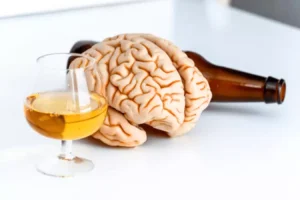
Modern addiction treatments are designed to address the immediate cessation of substance use and mitigate the risk of relapse. These treatments consider the chronic nature of addiction, emphasizing the need for ongoing care and support. Group therapy sessions dedicated to goal setting help individuals define their aspirations, both in the short-term and long-term. Setting achievable goals and celebrating successes, no matter how small, can be incredibly motivating. Topics may include identifying warning signs, seeking help during a crisis, and developing a strong https://ecosoberhouse.com/ support system. More information is below about understanding relapse and preventing relapse after substance abuse treatment.
- This peace will help you stay motivated towards your recovery journey.
- The group leader then reads each fear, allowing members to identify shared fears and feel less alone.
- If you or a loved one is looking for substance abuse treatment, you can find it today.
- These activities provide a structured and enjoyable approach to therapy sessions, making them more accessible and encouraging active participation.
- Narrative group therapy is an existential approach to therapy and allows clients to take ownership of their story by sharing it and rewriting it (Clark, 2014).
Addiction Recovery Group Activities
The use of art, music, and other creative mediums can enhance the therapeutic process and facilitate healing substance abuse group activities on multiple levels. This expanded version will delve deeper into the benefits of art therapy and music therapy in substance abuse recovery. Many support group meetings and group therapy sessions start with check-ins. When recovering from drug addiction (also called substance use disorder), many people feel alone. That’s why most addiction treatment centers offer support groups and group therapy.

Practicing Mindfulness Through Meditation
- All members of your community, young and old, can benefit from these science-based insights.
- In this post, I highlight 58 Substance Abuse Group Therapy Activities for Recovery that you can use with your clients.
- For those craving a bit more adventure, outdoor team-building exercises and nature walks offer a breath of fresh air – literally and figuratively.
- Each pair is asked to report to the group on three commonalities discovered.
- You can also keep a compassion box in which group members can write positive notes for other members.
Moreover, they can aid in addressing co-occurring disorders, or mental disorders that occur along with addiction, providing participants with valuable coping strategies. Group mindfulness practices and relaxation techniques, such as yoga or tai chi, significantly benefit people in all stages of recovery, offering a form of self-care. Our caring admissions navigators are available 24/7 to answer your questions about what to expect at rehab, levels of addiction treatment, and how to start the rehab admissions process. This article will cover what group therapy is and some of the more common types of group therapy and activities used for addiction treatment. Sound therapy may be most beneficial when offered by a trained practitioner, but music, instruments, or nature sounds may also be incorporated informally into group and peer sessions. Question balls are a resource that group leaders may use to get topics of conversation going.
Best narrative therapy group activities
Access free lesson plans and activities on the science and consequences of drug use, including downloads, videos, and Kahoot! The internet is filled with health information—and some of it is not truthful or accurate. Teach youth health literacy—the skill of finding and using credible information to make decisions and take actions that support their health. NIH scientists explain the short- and long-term effects of using substances to cope with stress.
What is a Recovery Support Group?

Skillful facilitators must create a nonjudgmental space where participants can openly express their doubts and concerns. Balancing empathy with gentle encouragement helps participants explore their ambivalence and find their intrinsic motivations for change. Practicing refusal skills through role-playing is a dynamic way to prepare participants for real-world situations where they might be tempted to use substances. By simulating scenarios involving peer pressure or social settings, participants can practice assertively declining offers of drugs or alcohol.
Discover Therapy Worksheets to Help Your Clients
She has provided psychotherapy in a residential treatment program and an outpatient addiction treatment facility in New York as well as an inpatient addiction rehab in Ontario, Canada. She has experience working with individuals living with a variety of mental health concerns including depression, anxiety, bipolar disorder, borderline personality disorder, and trauma. Mindfulness exercises, such as meditation and deep breathing, can help individuals develop present-moment awareness and improve their ability to cope with cravings and triggers. Role-playing scenarios allow individuals to practice and refine their coping strategies in a safe and supportive environment. By taking on different roles and exploring various situations, participants can develop effective problem-solving skills, learn assertiveness techniques, and build resilience.
What Is Group Therapy?
A fun worksheet for creating a bucket list of things that are only possible in sobriety. A 1-page checklist with quick tips, self-soothing, and indulgent ideas for self-care. A 1-page worksheet for exploring ways to resist urges to use in early recovery. A to-do list of kind deeds with blank spaces to write in your own ideas for spreading kindness. A 2-page handout with journal prompts for recovery, based on material from The Sober Survival Guide (created with the author’s permission).
It is always important for group members to discuss any current issues and get advice and support from other members of the group. If you feel that any of our content is inaccurate, out-of-date, or otherwise questionable, please contact at Afterward, participants may be invited to share any surprising or revealing thoughts they had, if they feel comfortable doing so. Role-playing is an effective way to help group members practice handling any tough situations that may arise during treatment, such as making apologies and amends to family members. Participants can share how they are practicing self-care to encourage and inspire their peers.

- The first time attending any group therapy session can be intimidating.
- This complex, intense interpersonal experience can be filled with powerful interaction and meaningful activities.
- Loneliness, grief, and loss are very much related to both anxiety and depression.
- Find classroom activities that teach students in grades 5-8 how to resist peer pressure, effective ways to say “no” to peers, with downloads and role-playing activities.
- Many recovery groups encourage gratitude by having members write gratitude lists.
(Prizes optional, but always appreciated.) During the debriefing, it’s fun to learn more (and thereby increase understanding and compassion). These groups use a variety of activities to help people recover together. While we are unable to respond to your feedback directly, we’ll use this information to improve our online help. American Addiction Centers (AAC) is committed to delivering original, truthful, accurate, unbiased, and medically current information.
Role-playing scenarios allow individuals to rehearse responses to triggering situations in a supportive environment. It’s like a dress rehearsal for real-life challenges – minus the actual stress. CBT exercises in a group setting can be invaluable in relapse prevention. Most addiction treatment programs use this form of evidence-based behavioral health therapy. Spending time outdoors and engaging in nature-based activities can have a profound impact on individuals in recovery. Nature offers a peaceful and rejuvenating environment that can help relieve stress, promote relaxation, and enhance overall well-being.